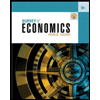Part 1 ( See Hint Two Cournot duopolists compete in a market with inverse demand given by p = 152.00 - 20, where p is the per-unit price, qi is the output for firm i (either firm 1 or firm 2), and Q = 91 + 92. Firm 1 has a cost function of c₁ (91) = 2₁₁ and firm 2 has a cost function of c2(92) = 392. Assume no fixed costs. What is the optimal output for firm 1? (Round to two decimals if necessary.) What is the optimal output for firm 2? (Round to two decimals if necessary.) Part 21 What is the equilibrium price in this market? $ (Round to two decimals if necessary.) Part 3 What is the profit for each firm? Firm 1 profit: $ (Round to two decimals if necessary.) Firm 2 profit: $ (Round to two decimals if necessary.) See Hint See Hint
Part 1 ( See Hint Two Cournot duopolists compete in a market with inverse demand given by p = 152.00 - 20, where p is the per-unit price, qi is the output for firm i (either firm 1 or firm 2), and Q = 91 + 92. Firm 1 has a cost function of c₁ (91) = 2₁₁ and firm 2 has a cost function of c2(92) = 392. Assume no fixed costs. What is the optimal output for firm 1? (Round to two decimals if necessary.) What is the optimal output for firm 2? (Round to two decimals if necessary.) Part 21 What is the equilibrium price in this market? $ (Round to two decimals if necessary.) Part 3 What is the profit for each firm? Firm 1 profit: $ (Round to two decimals if necessary.) Firm 2 profit: $ (Round to two decimals if necessary.) See Hint See Hint
Managerial Economics: Applications, Strategies and Tactics (MindTap Course List)
14th Edition
ISBN:9781305506381
Author:James R. McGuigan, R. Charles Moyer, Frederick H.deB. Harris
Publisher:James R. McGuigan, R. Charles Moyer, Frederick H.deB. Harris
Chapter13: best-practice Tactics: Game Theory
Section: Chapter Questions
Problem 1E
Question
Solve all parts will upvote.
The hand written solution is not allowed please

Transcribed Image Text:Part 1 (
See Hint
Two Cournot duopolists compete in a market with inverse demand given by p = 152.00 - 20, where p is the per-unit price, qi is
the output for firm i (either firm 1 or firm 2), and Q = 91 + 92. Firm 1 has a cost function of c₁ (91) = 2₁₁ and firm 2 has a cost
function of c2(92) = 392. Assume no fixed costs.
What is the optimal output for firm 1?
(Round to two decimals if necessary.)
What is the optimal output for firm 2?
(Round to two decimals if necessary.)
Part 21
What is the equilibrium price in this market? $
(Round to two decimals if necessary.)
Part 3
What is the profit for each firm?
Firm 1 profit: $
(Round to two decimals if necessary.)
Firm 2 profit: $
(Round to two decimals if necessary.)
See Hint
See Hint
Expert Solution
This question has been solved!
Explore an expertly crafted, step-by-step solution for a thorough understanding of key concepts.
This is a popular solution!
Trending now
This is a popular solution!
Step by step
Solved in 2 steps

Recommended textbooks for you

Managerial Economics: Applications, Strategies an…
Economics
ISBN:
9781305506381
Author:
James R. McGuigan, R. Charles Moyer, Frederick H.deB. Harris
Publisher:
Cengage Learning



Managerial Economics: Applications, Strategies an…
Economics
ISBN:
9781305506381
Author:
James R. McGuigan, R. Charles Moyer, Frederick H.deB. Harris
Publisher:
Cengage Learning





Survey of Economics (MindTap Course List)
Economics
ISBN:
9781305260948
Author:
Irvin B. Tucker
Publisher:
Cengage Learning